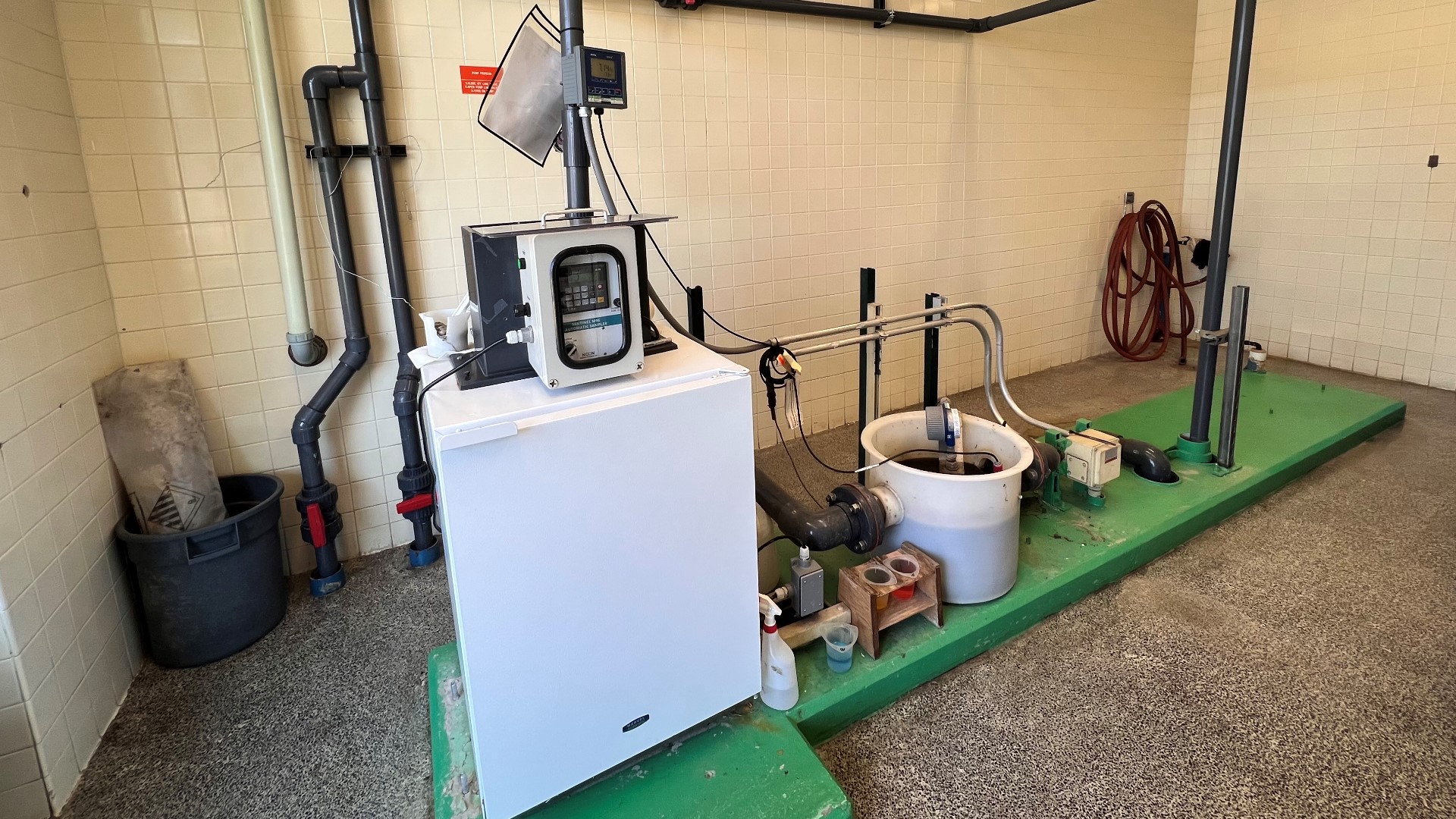ST. LOUIS — COVID-19 transmission is still high in both St. Louis and St. Louis County. Health experts in Missouri have been tracking the spread of the virus since the start of the pandemic by collecting wastewater samples across the state.
"The reason it's so important right now is so many people are getting tested at home, or maybe not even tested at all," said MSD Project Clear Spokeswoman Bess McCoy.
Raw sewer water is a key factor when determining COVID levels in the state of Missouri, especially as experts see fewer people testing. The Sewershed Surveillance Project looks for COVID-19 viral loads in the wastewater of more than 100 different communities.
The Lemay plant is just one of many St. Louis plants that collect wastewater samples.
"We have this machine here and it takes about a tablespoon every 10 minutes and then dumps it down into this sample selection container, and then we take that to our lab and package it," McCoy said.
From there, the samples are tested and studied across a state level.
In Columbia, Missouri, Marc Johnson is one of the main researchers who has been studying samples to see what kind of mutations are present. His most recent focus has been the BA.5 variant.
"They're very good at getting through that first line of defense," Johnson said.
In St. Louis, the health department believes 70 percent of new cases are because of BA.5. As the Sewershed Project continues, Johnson said he's been finding traces of BA.5 for months.
"BA.5 seems to be expanding faster than BA.4 because the two are nearly identical, and I don't know what about BA.5 makes it better," he said.
Although the project covers lots of ground, Johnson said the community must stay vigilant.
"The virus is still here, and it is not static it is adaptive. So, your immunity is only good for so long," he said.

